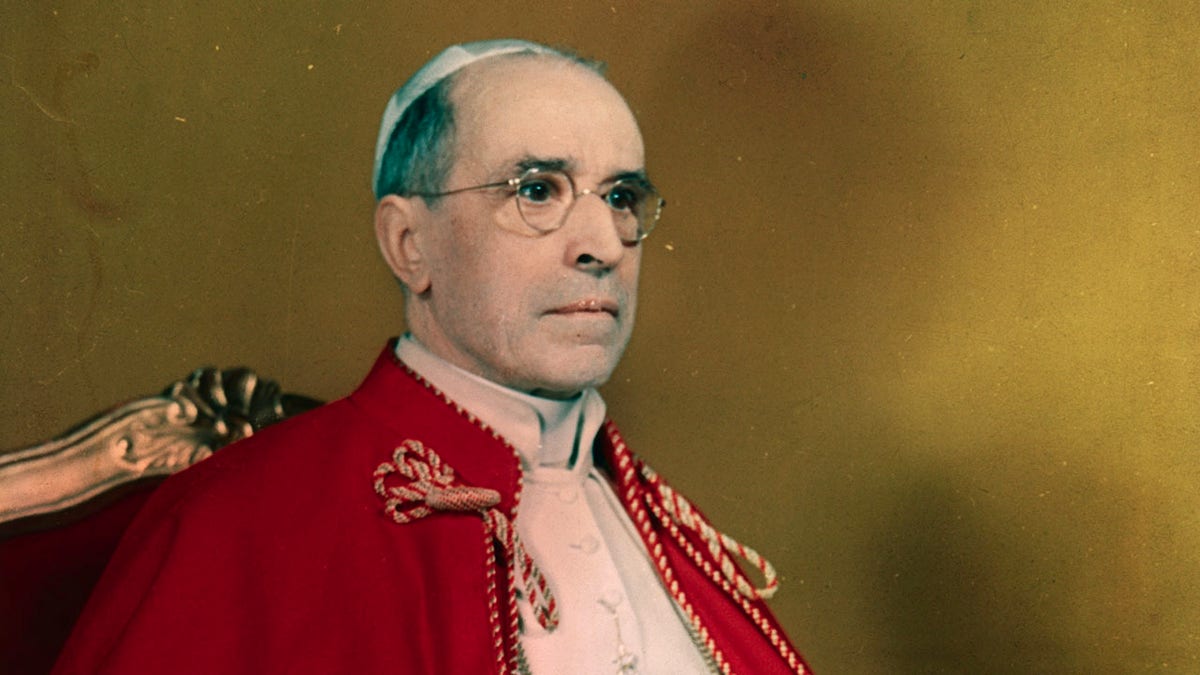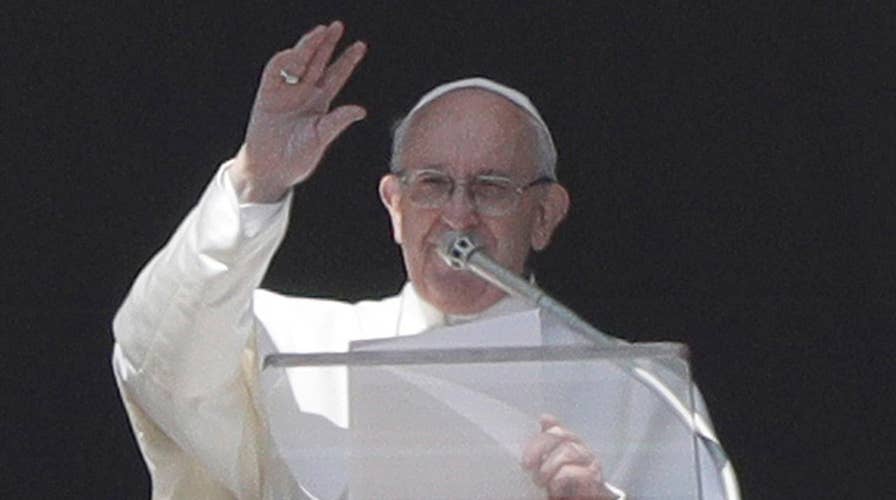Pope Francis to host summit to tackle clergy abuse
Vatican hopes global clergy abuse meeting will be 'turning point' and help repair the reputation of the Catholic Church.
At a time when the Catholic Church - rocked by a litany of child abuse scandals that span the globe and go back decades - is under intense pressure to be more transparent, Pope Francis has decided to open up the Vatican archives on one of his most controversial predecessors.
Pope Francis on Monday said he will allow access to the records on World War II-era Pope Pius XII, whom many Jewish groups long have said did little to stop the Holocaust. The Vatican has defended Pius, saying he used behind-the-scenes diplomacy to try to save lives. Francis indicated he, too, embraced that interpretation.
Declaring that the church “isn’t afraid of history,” Francis told officials and personnel of the Vatican Secret Archives the archive would be open to researchers starting March 2, 2020.
“The church isn’t afraid of history. On the contrary, it loves it, and would like to love it even more, like it loves God,” Francis told the staff at the archive. “Thus, with the same trust of my predecessors, I open, and entrust to researchers, this patrimony of documentation.”
The Vatican usually waits 70 years after the end of a pontificate to open relevant archives. But the pope has been under pressure to make the Pius XII documentation available sooner and while Holocaust survivors are still alive.
Jewish leaders welcomed the announcement. They are among those who have been pushing for the archives to be open for many years.

Portrait of Pope Pius XII seated on throne. (Getty Images)
Many were infuriated when in 2009 Pope Benedict XVI said Pius XII was being considered for sainthood. Benedict maintained, as have others, that Pius worked “secretly and silently” to help save Jews.
American Gathering of Holocaust Survivors and Their Descendants condemned the move by Benedict as “profoundly insensitive and thoughtless,” according to The New York Times.
After Monday’s announcement, the Yad Vashem Holocaust memorial in Jerusalem commended the decision, and expressed the expectation “researchers will be granted full access to all the documents stored in the archives.” It noted that it had for years called for the opening of the archives, saying that would “enable objective and open research as well as comprehensive discourse on issues related to the conduct of the Vatican in particular, and the Catholic church in general, during the Holocaust.”
Israel’s Foreign Ministry similarly expressed hopes there would be “free access to all relevant archives.”
Pius was elected pontiff on March 2, 1939, six months before World War II erupted in Europe. Pius died on Oct. 9, 1958, at the Vatican summer residence at Castel Gandolfo, near Rome.
Vatican archivists had already started preparing the documentation for consultation back in 2006, at the behest of Francis’ German-born predecessor, Benedict XVI.
RELATED; POPE SHAKES UP VATICAN COMMUNICATIONS OPERATIONS
The opening of the archives are also seen as part of the effort to decide if Pius should be declared a saint, a sentiment that's still alive with his supporters. Francis indicated the church was confident the papacy would withstand the findings by historians’ studying the archives, saying Pius was “criticized, one can say, with some prejudice and exaggeration.”
Francis expressed certainty that historical research would properly evaluate Pius’ legacy “with appropriate criticism.” He said the Pius papacy included “moments of grave difficulties, tormented decisions of human and Christian prudence, that to some could appear as reticence.” Instead, he said, they could be seen as attempts “to keep lit, in the darkest and cruelest periods, the flame of humanitarian initiatives, of hidden but active diplomacy” aimed at possibly “opening hearts.”
In New York, Rabbi Rosen, international director for inter-religious affairs at the American Jewish Committee, called Francis’ decision “enormously important to Catholic-Jewish relations.” He noted in a statement that he had raised the issue with Francis and his predecessors in meetings.
“It is particularly important that experts from the leading Holocaust memorial institutes in Israel and the United States objectively evaluate as best as possible the historical record of that most terrible of times — to acknowledge both the failures as well as the valiant efforts made during the period of the systematic murder of six million Jews,” Rosen said.
Later this week, an AJC leadership delegation will be given an audience with the pope at the Vatican. The organization has lobbied for more than 30 years for full access to the archives.
The United States Holocaust Memorial Museum, meanwhile, praised Francis' decision as one of "moral urgency."
“Since the end of World War II, scholars, Holocaust survivors, and others have asked important questions about the role of the Vatican and Pope Pius XII during the Holocaust,” said Museum Director Sara J. Bloomfield said in a statement. “It is long overdue for speculation to be replaced by rigorous scholarship, which is only possible once scholars have full access to all of these records. This is important for the sake of historical truth, but there is moral urgency too: we owe this to the survivor generation, which is rapidly diminishing.”
Francis' comment about the church not being afraid of its own history comes as it confronts one of its darkest aspects -- clergy sex abuse. Pope Francis was criticized by some for having had a blind spot on clergy sex abuse, which experts say threatens his legacy and throws the Catholic hierarchy into a credibility crisis not seen in modern times.
Former Vatican ambassador to the U.S., Archbishop Carlo Maria Vigano, said Francis simply didn't "get it" when he first became pope in 2013. Francis' early missteps included associating with compromised cardinals and bishops, and downplaying or dismissing rumors of abuse and cover-up.
In the last year, however, he has been credited for publicly admitting he was wrong about a sex abuse case in Chile. He has subsequently laid the groundwork for more substantive steps to address clergy abuse. That includes a recent summit to address clergy sex abuse, and the defrocking of former U.S. cardinal Theodore McCarrick of Washington, D.C.
German Cardinal Reinhard Marx told Pope Francis' sex abuse prevention summit last month that the church's failed administration of the problem — including the destruction of files about abusers, the silencing of victims and the disregard for church procedures — had worsened the crisis and was driving the faithful away.
The Associated Press contributed to this report.

